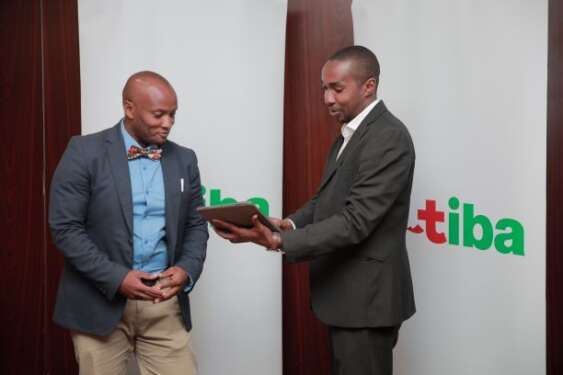The medical insurance industry in Kenya is exploding taking advantage of a growing digital sphere to introduce affordable covers. Carepay, the innovative medical insurance company with a presence in Kenya, Nigeria, and Tanzania is leading this effort with several partnerships aimed at bringing costs down.
The industry is still on the lookout of a replacement for affordable medical cover that will meet the needs of the majority while supplementing the government-provided cover. In 2015, Linda Jamii, a famed medical cover outfit by Safaricom and Britam Kenya collapsed after it was discovered it was not making much business sense to the companies. What followed was a huge uproar with users unable to find an alternative cover.
In this, the industry has been on the lookout for a cover that meets the interests of the underwriter as well as those of the users.
Recently Carepay conducted thorough research in Kenya both among its subscribers as well as the general population with an aim of understanding the market and the gaps therein.
The company, which runs M-TIBA, the innovative mobile-based insurance service, and Ajua, have released a report on mobile health transformation in Kenya. It features findings of a survey conducted in August 2020 among a nationally representative sample on Ajua’s SMS survey platform, as well as a sample of M-TIBA customers.
The report reveals how mobiles are increasingly being used to access care and are generating demand for new digital healthcare services. It also looks at how Kenyans were prioritizing spending during the COVID-19 lockdown.
The report shows that in August 2020, COVID-19 had shifted people’s spending priorities towards the essentials – particularly food and healthcare. These were followed by loan repayments, business expenses, electricity and school fees.
While respondents were reporting greater prioritization on healthcare, this was not translating into revenues for providers, who were experiencing steep falls in patients coming to clinics and hospitals. This has prompted providers to accelerate digitization plans and roll out more mobile services.
Moses Kuria, Managing Director, CarePay Kenya says,”The reality is that those businesses that had not digitized prior to COVID-19 were critically exposed. Now they are being driven to evolve and adapt at a much faster pace. We should expect more disruptions in the coming years. Healthcare providers and insurers have proven their adaptability and increasing impetus for transformation. We believe that this flexibility will enable businesses to better withstand future upheavals.”
The company is also exploring gaps that have been prevailing in the market after the collapse of affordable medical covers as well as where the national cover, National Health Insurance Fund (NHIF) leaves some of those who would need a more elaborate cover.
The survey shows that over 37% of the national sample are already using their mobiles to access healthcare. Health insurance and payments are driving this, with NHIF, M-PESA and M-TIBA being the most-used mobile services.
93% of the people surveyed, who are using their mobiles to access care, report an improvement in their healthcare experience. They cite the leading benefits as greater control, better access to quality care and an improved payment process.
Moses Kuria says, “We’ve seen the power of mobiles in helping more Kenyans access financial services. The COVID-19 pandemic has reminded us that mobile channels are now a pre-requisite for healthcare providers and insurers to reach more Kenyans and the uninsured.”
The report shows that there is strong customer demand for mobile products and services. 88% of the survey sample indicated that they would like to receive more mobile healthcare services. This demand peaks in Kisumu County (93%) and among the 50-54 age bracket (91%).
Dr. Torooti Mwirigi, Commercial Director, CarePay Kenya, says, “As they roll out telemedicine services, providers need to rethink how they are using customer information. As it stands, patients have to share their medical histories over and over again when they visit a hospital or clinic. By packaging information in a way that’s more useful to patients, providers will be able to build trust around new products and services.”
The report highlights the challenges facing providers as they expand digital and mobile services. 47% of the survey respondents are still likely to choose their hospital or clinic based on its physical proximity to their home or workplace. Only half that number make their choice of provider based on it being fast and efficient (21%) or it being affordable (20%).
Dr. Mwirigi says, “The smart healthcare providers are investing in their physical and digital networks to capture local patients. At the same time, they are building better referral systems to control patient pathways across different locations and departments.”
Even with these new product developments and changing consumer preferences, the survey shows that out-of-pocket payments are still being made in 58% of clinical visits (by people not registered on M-TIBA).
Moses Kuria, concludes, “When half of all healthcare expenditure in Kenya is still being paid out-of-pocket, there is a huge barrier to healthcare access. As an industry we need to focus on driving down the number of out-of-pocket payments and relieving the strain on millions of Kenyans who are forced into financial hardship through illness. There is no way we will get there without further digital disruption.”
The survey covered a sample of 4,345 respondents spread across Kenya and was conducted on Ajua’s SMS platform.
M-TIBA and Britam have announced the signing of a new strategic partnership to develop digital products to increase health insurance market penetration in Kenya. The partnership will see Britam and Carepay explore new mobile channels for Britam’s fast-growing micro–insurance portfolio and the future management of retail and SME health insurance clients. The first offering of this partnership will be a mobile-based inpatient health insurance available to over four million M-TIBA registered users.
